What is Labour Law
Labour Law is a specialisation that deals with the relationship between workers and their employers. The course helps students understand how employees are treated appropriately in workplaces and how their rights are not neglected. It also ensures that employees are treated well and are valued in a company. They also ensure that workplaces are fair and safe for the employees.
The specialisation of law focuses on proper management and grievances of labourers. The Labour law course includes theoretical and practical classes to provide the students with hands-on experience.The Labour Law course focuses on imparting basic knowledge about the labour law system.
Labour Law- Important Dates and Events
- 7th December 2024- CLAT result out
- 9th December 2024-CLAT 2025 Counselling Registrations Started
Labour Law Course Details
| Particulars | Values |
|---|---|
Branch Name | Labour Law |
Degree | LLB, Integrated LLB, LLM |
Duration | LLB (3 years) Integrated LLB (5 years) LLM (2 years) |
Eligibility | LLB (Graduate with 50 per cent of aggregate marks from a recognised board) Integrated LLB (10+2 with 50 per cent of aggregate marks from a recognised board) LLM (Bachelor of Law Degree with 50 per cent of aggregate marks) |
Admission Process | LLB (Entrance exams like CLAT, TS LAWCET, AILET, LSAT) Integrated LLB (Entrance exams like CLAT, LSAT, AILET) LLM (Entrance exams like AILET, IPU CET, BHU UET) |
Top Entrance Exams | CLAT, AILET, LSAT, DU LLB |
Course Fees | LLB (Rs 1,00,000 to Rs 1,50,000) Integrated LLB ( Rs 1,50,000 to Rs 5,00,000) LLM (Rs 1,50,000 to Rs 5,00,000 ) |
Top Colleges | Modern Law College Pune, BU Bhopal, Devi Ahilya Vishwavidyalaya, Indore, Indian Law Society Law College, Pune, JMI New Delhi |
Career options | Legal Advisor, Judge, NGO Worker |
Average Salary | Rs. 5 LPA |
Recruiting Companies | Khaitan & Co., Singhania & Partners, Desai & Diwanji, Labour Law Consultancy, Government Departments |
Top Law NIRF Ranking 2024
Students are advised to choose the law school based on the NIRF ranking 2024 (National Institutional Ranking Framework 2024). Generally, National Law Institutes maintain the top position and rankings depending on the educational facilities and the institute's stature. In the table below, we have mentioned the top law institutes based on the NIRF ranking.
| Top Law Colleges | NIRF Rankings (2024) |
|---|---|
1 | |
2 | |
3 | |
4 | |
5 | |
6 | |
7 | |
8 | |
9 | |
10 |
Top Private Labour Law Colleges in India
Labour Law courses are offered by a number of private universities and colleges in India. Admission is offered based on previous academic achievements and the results of the entrance examinations. The table below lists some of India's best private Labour Law colleges.
| Colleges | Fees |
|---|---|
Rs. 39,000 | |
Rs. 10,000 | |
Rs. 64,000 | |
- | |
Rs. 9,450 | |
- | |
- | |
Rs. 11,000 | |
- | |
- |
Top Government Labour Law Colleges in India
In India, there are many government universities and colleges that offer Labour Law courses. Prior academic achievements and entrance examination scores are used to determine admission for Labour Law courses. India's best government Labour Law colleges are listed in the table below.
| Colleges | Fees |
|---|---|
- | |
Rs. 29,210 | |
- | |
Rs. 26,600 | |
- | |
- | |
Rs. 67,200 | |
- | |
Rs. 50,270 | |
- |
Eligibility Criteria (UG & PG) of Labour Law
Candidates interested in pursuing a Labour Law course at both undergraduate and postgraduate levels must have an aptitude and interest in Law. For UG degrees, candidates must have cleared their 10+2 from a recognised institute in India, however, for PG degrees, candidates require a bachelor's degree from a recognised institute in India. They must also meet the eligibility criterion specified by the institute.
Eligibility Criteria for UG Courses
To apply for an undergraduate degree in the field of Labour Law, the candidates must have cleared their 10+2 examination in any stream (humanities, commerce, or science). They also need to meet the specified eligibility requirements for the course. In the table below we have discussed the eligibility details of undergraduate courses in the field of labour law.
| Eligibility Parameters | Details |
|---|---|
| Educational Qualification | 10+2 (humanities, science, and commerce) from a recognised board in India |
| Minimum aggregate requirements | 50-60 per cent (5-10 per cent relaxation for candidates belonging to the reserved categories) |
| Entrance examination | CLAT UG, SLAT |
Eligibility Criteria for PG courses
Candidates interested in pursuing postgraduate courses in the field of Labour Law must meet certain eligibility requirements. For postgraduate courses, they must complete their Bachelor’s degree with a minimum aggregate score of 60 per cent, they must also successfully clear the entrance examination specified by the institution.
| Eligibility Parameters | Details |
|---|---|
| Educational Qualification | Bachelor's degree from a recognised institute in India |
| Minimum aggregate requirements | 50-60 per cent (5-10 per cent relaxation for reserved category applicants |
| Entrance examination | LSAT, and CLAT PG |
College Predictors VIEW ALL
Scope of Labour Law in India and Abroad
Labour Law focuses on how the laws are applied in an organisation. The major focus of labour law is on the study of the problems faced by employees, the safety and comfort of the employees, and ensuring the workplaces are safe and fair. The scope is also emerging because the community keeps growing day by day
With advancements in technology, and the number of labourers increasing, the need for professionals in this field is also in demand. After the successful completion of this course, the candidates are hired as Legal Experts, Consultants, Human Resource Managers, or judges. Therefore, the scope of this field keeps expanding tremendously not only in India but in other countries as well.
Course Fees Labour Law
| Minimum Fees | Maximum Fees | |||
|---|---|---|---|---|
| Private | Government | Private | Government | |
| UG | ||||
| PG | ||||
| DIPLOMA | ||||
Course Subjects
The subjects and syllabus of the Labour Law course depend on the institute, some of the subjects are the Indian Legal System, Labour Welfare Legislation, Employment Law, Law of Consumer Protection, Labour Arbitration, Labour Law and Policy. We have mentioned below the Labour Law syllabus for undergraduate and postgraduate degrees.
Labour Law Syllabus for UG course
Labour Law as a specialisation is not offered at the undergraduate level, but there are certain subjects that are related to Labour Law in the syllabus. Some of the subjects are the Indian legal system, constitutional law, criminal law, and contract law. Below, we have mentioned some more subjects related to the Labour Law.
Indian legal system | Constitutional law |
Criminal law | Contract law |
Environmental law | Industrial relations law |
Social security law | Labour welfare legislation |
Labour Law Syllabus for PG course
Labour law course at the postgraduate level provides a detailed understanding of the labour law course. Labour law courses consist of some core subjects and elective subjects for the specialisation. In the table below we have mentioned the syllabus of Sri Venkateswara University for their LLM Labour Laws course.
Semester- I | |
Labour Management Relations and Dispute Resolution | Trade Union Law |
Law and Social Transformation in India | Indian Constitution The New Challenges |
Semester- II | |
Wages and Minimum Labour Standards | Law and Social Security |
Judicial process | Legal Education and Research Methodology |
Semester- III | |
Industrial Discipline and Law | Collective Bargaining |
Practical Training | Environment Protection and the Law |
Intellectual Property Rights Law | Cyber Crimes and Law |
Evolution and Concept of ADR | - |
Semester- IV | |
Dissertation and Viva- Voce | Law of Consumer Protection |
International Human Rights ( MOOC/ Online Courses) | - |
Careers in Labour Law
On the successful completion of a labour law course, the candidate gets hired for various job profiles based on their overall performance and skills. Some of the career options are Legal Advisor, NGO Worker, and Judge. In the table below, we have mentioned some of the career options available after the Labour law course.
| Job Profiles | Job Description |
|---|---|
A Legal Advisor is a professional who is responsible for looking after all the legal work of the organisation. He or she has to research the laws and how they are useful while working in an organisation. A Legal Advisor is also responsible for looking after the court records and contracts. | |
NGO Worker | An NGO Worker is an individual who works for a Non- Non-governmental organisation ( NGO), He or she has diverse roles to play like filing petitions, creating awareness, and looking after the management. He or she is the one who is responsible for the management and is answerable to the head. |
A judge is the professional who reviews the briefs, looks after the evidence and delivers their judgement. He or she also assists the juries and then directs them in some cases. |
Upcoming trends
Labour Law, also known as employment law is a vast field that includes the rights, obligations, and responsibilities within the employer-employee relationship. It includes a wide range of topics such as workplace safety, discrimination, child labour, trade unions and employee benefits.
In recent years, the field of labour laws has been undergoing significant changes due to shifts in the global economy, technological advancements, and societal information. This indicates that the field of labour law is continuously evolving to keep up with the changing times and needs of the workforce. Some of the major innovations in the field of Labour Law are:
- Paradigm Shift in Fundamentals
- Align Labour Policy
- Labour Law Reform
- Competitive Labour Policy
Job Profiles and Top Recruiters
After the completion of the labour law course, many opportunities open for the individual. However, it is completely the candidate's call to choose which opportunity. There is a wide scope of this course now as well as in future looking at the current scenario.
Top Recruiters
- Khaitan & Co.
- Singhania & Partners
- Desai & Diwanji
- Labour Law Consultancy
- Government Departments
Average Salary
The salary package differs from one job profile to another and is decided after looking at the overall performance of the candidate in the interview. The candidate has to make sure that the resume is up to date and includes their skills and other aspects, to increase the chances of getting hired. In the table below, we have mentioned the average salary of few job roles in Labour Law.
| Job Profile | Average Salary |
|---|---|
| Labor Lawyer | Rs. 4.5 LPA |
Judicial Officer | Rs. 14 LPA |
Legal Analyst | Rs. 5 LPA |
Senior Advocate | Rs. 7.7 LPA |
Consultant | Rs. 12 LPA |
Salary source: Ambitionbox and Glassdoor
Required Skillset for Labour Law
Every profession needs certain skill sets to get better at the workplace. The candidate must possess certain skills to enhance themselves. These skills will be helpful both academically and professionally. Some of the skills required are Good Communication Skills, Interest and Aptitude for Labour Law, and Problem-Solving Skills. In the table below we have mentioned some more skills.
- Good Communication skills
- Good Teamwork
- Problem-solving
- Legal knowledge
- Debating skills
- Interest and Aptitude for Law
Course Curriculum for Labour Law
The course curriculum helps the students to get a better understanding of the labour law course, it also helps the students to get a better understanding of the course. Some of the subjects in the course curriculum are Welfare, Wages and Remuneration, Social Security, and Trade Unions. Below, we have mentioned the labour law course curriculum.
- Welfare
- Administration of Labour Law
- Wages and Remuneration
- Social Security
- Trade Unions
Popular Labour Law Entrance Exams in India
Frequently Asked Questions (FAQs)
Question: What are some popular career options after Labour Law course?
Answer :
There are many career options after Labour Law course, some of the top career options are Legal Advisor, NGO Worker, and Judge.
Question: What are the top entrance exams required for Labour Law degrees?
Answer :
The top entrance exams that are required by the institute are CLAT UG, CLAT PG, AILET, SLAT, and LSAT.
Question: What is the average salary of a Labour Law graduate?
Answer :
The salary of a Labour Law graduate depends on the job profile, location of the company, skills and accomplishments of the candidate. The average salary of a NGO Worker is Rs 2-4 LPA.
Question: What are the top recruiters in the field of Labour Laws?
Answer :
The top recruiters in the field of Labour Laws are Khaitan and Co., Singhania and Partners, and Desai and Diwanji.
Question: Is a career in Labour Law a good career?
Answer :
Yes, a career in Labour Law is a good career. If you’re someone who has a keen interest and the willingness to study the law and its enforcement in the organizations, then a career in labour law is a good career for you.
A career in labour law is one of the best choices if you want to learn about employees and employers and how the law governs the organization.
Question: Is a course in Labour Law easy or tough?
Answer :
A course in Labour Law is nothing such as easy or tough because it depends on the candidate how he/she studies the subjects that are covered in the course. If they pay sincere attention and study the subjects well, then labour law is not tough for them, but if they don’t focus on the studies and subjects, then a course in Labour Law might be tough for them.
Question: Is it important for the candidate to appear for the entrance examination?
Answer :
Yes, to procure admission to the said course, the candidate needs to appear for the entrance examination because based on that, the candidate will be granted admission to the course.
Some of the entrance examinations are CLAT, LSAT, and AILET. The candidate needs to secure good marks in the entrance examination to procure admission in a particular college or university.
Question: What are the various job profiles in this field?
Answer :
After the successful completion of this course, the candidate is hired for a job profile based on his/her experience. Some of the job profiles include Legal Analyst, Lawyer, Judge, EPF Officer, and NGO Worker, among others. It depends on the candidate that he/she has to apply for which job role.
Question: What is the main purpose of Labour Law?
Answer :
The main purpose of Labour Law is to ensure that there is a proper balance between the worker and the employer. Every organization needs to follow certain rules and regulations of the labour law.
Labour Law is a subject that deals with how employees are treated appropriately in workplaces, and their rights are protected as an employee. This law ensures that employers are treated well, and also, they are valued for their work.
Questions related to Labour Law
What is the fees strusture for Diploma in Labour Law and Labour Welfare and what is the procedure for admission?
Hello aspirant,
Hope you are doing well...!!!
Confirmation in Labor Laws and Labor Welfare is a one year recognition course. Which centers around safeguarding work and guaranteeing their fair, solid and safe workplace prompting expanded efficiency.
Fundamental qualification prerequisites for Diploma in Labor Law and Labor Welfare are the accompanying.
Competitors probably passed the four year college education with 55% imprints from the UGC supported University.
Competitors who passed or have the same confirmation or experience will likewise be thought of as qualified
The course expenses goes from INR 10,000 - 30,000 relying on the establishment.
Admission to this course is done based on entrance Test.
Hope this information helps you!!!
All the best!!!
want to do d iploma in labour law
Dear Shalini,
Diploma in Labour Law is a one year course which focuses on protecting labour and ensuring their fair, healthy and safe work environment leading to increased productivity.
It's eligibility criteria states that candidates should have minimum of 55% aggregate marks or equal CGPA in their graduation or LLB from a recognised University / College.
Admissions to Diploma courses in Labour Laws are done on the basis of entrance exams such as CLAT, LSAT, AILET, DU LLB.
Course fee: INR 9000 to INR 45000
Average placement: INR 1 LPA- INR 3 LPA
Top colleges offering diploma in Labour Law are:
1. Gujarat National Law University, Gujarat
Admission process: CET
Average annual fee: INR 55000
2. Symbiosis Law School, Pune
Admission process: SLAT
Average annual fee: INR 70000
3. Jamia Millia Islamia, Delhi
Admission process: CLAT
Average annual fee: INR 18000
4. Banaras Hindu University, Varanasi
Admission process: CLAT
Average annual fee: INR 3500
5. Christ University, Bangalore
Admission process: CLAT
Average annual fee: INR 35000
Top Recruiting Areas: Human resource management, Labour law consultancy, NGOs, Government departments, etc.
Job Positions: Provident fund manager, NGO worker, Human resource manager, EPFO officer, Consultant, legal expert, etc.
Hope this helps.
Best wishes.
Public institutions offering diploma in labour law in which application window is right now open?
Right now there is no application open , colleges already started counselling in their college.
i want to do post graduate diploma in labour law from distance learning near by delhi College or University having centres in delhi please suggest me University or College thanks in advance
Hello,
To answer your question there are various colleges in Delhi providing post graduate diploma in labour law like Jamia Millia Islamia(JMI) in Okhla, Delhi Degree College-DDC , Indian Law Institute, Centre for Environmental Law, Indian Academy of International Law and Diplomacy, wherein Jamia is the most popular.
i want to take admission in labour law for 21-22 . please help me with the process
Dear Student,
Labour Law Eligibility Criteria:
- For labour law Diploma course, you need to pass graduation with a minimum marks of 55% from a recognised university. 5% reservation shall be offered to the candidates belonging to reserved category.
- For labour law Under Graduate course, you need to pass graduation with a minimum marks of 50% to 55% from a recognised university. 5% reservation shall be offered to the candidates belonging to reserved category.
- For labour law Post Graduation course, you need to pass graduation with a minimum marks of 55% from a recognised university. 5% reservation shall be offered to the candidates belonging to reserved category.
Labour Law Entrance Examinations:
- CLAT.
- AILET.
- AIBE.
- LSAT.
- TS LAWCET.
- AP LAWSET.
Top Colleges for Labour Law:
- Gujrat National Law University. Gandhinagar.
- University of Petroleum and Energy Studies, Dehradun.
- Post Graduate College of Law, Osmania University. Hyderabad.
- Mahatma Gandhi Law College. Hyderabad.
- Government Law College. Pondicherry.
Thank You.




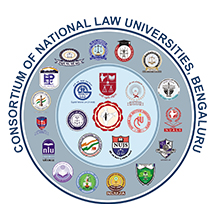
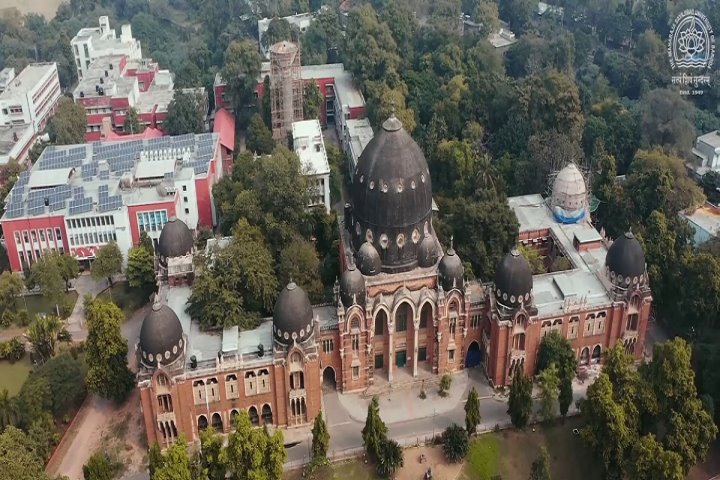
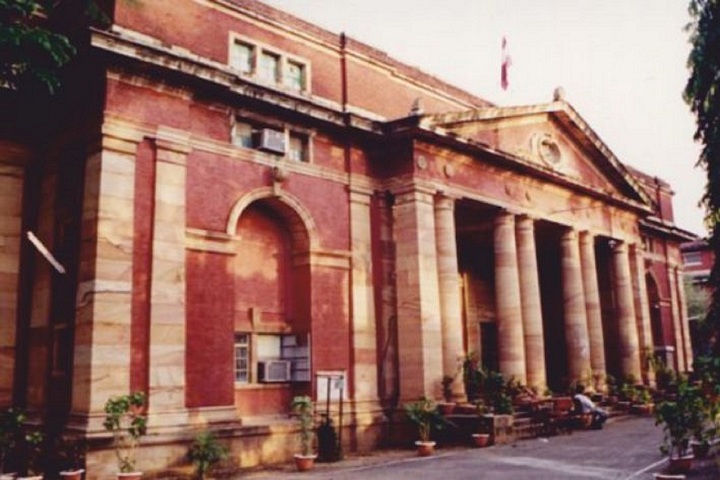
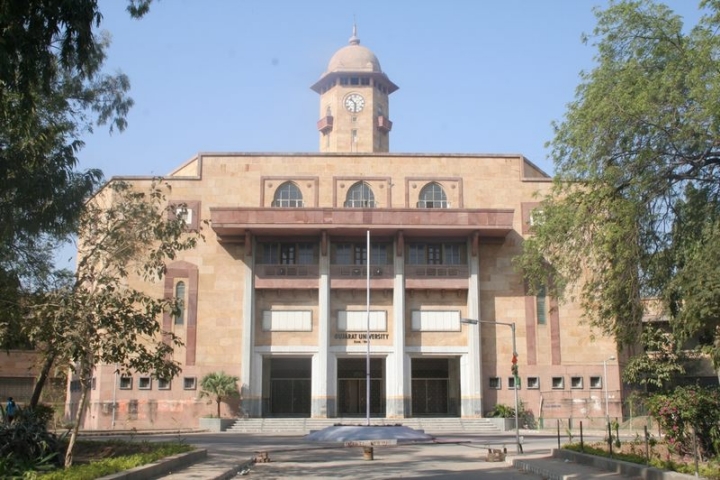
.jpg)
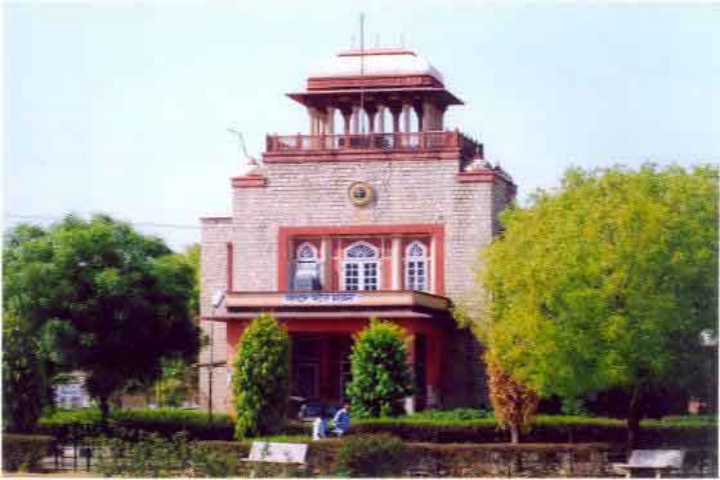



 Answer later
Answer later











